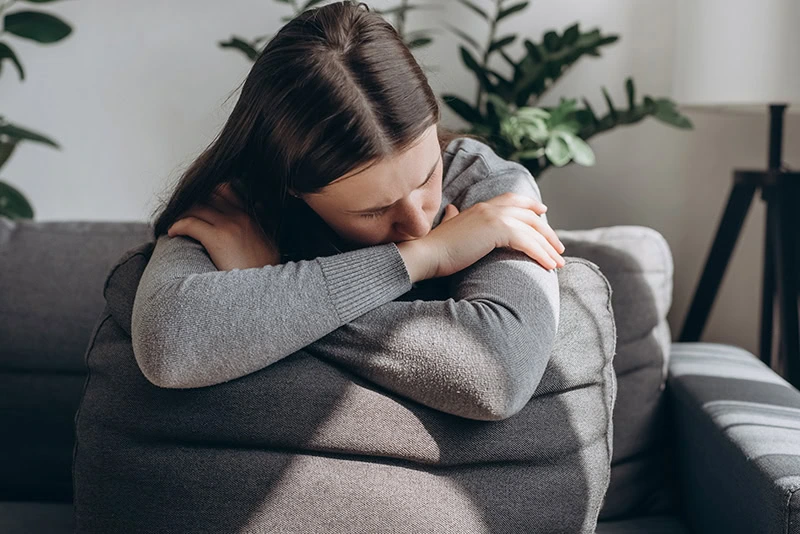Recovery from addiction isn’t just about stopping substance use—it’s about building a new way of life. Central to this transformation are coping skills, the mental and emotional tools that help you navigate challenges without turning to substances.
Coping skills serve as your defense system against triggers, stress, and the inevitable ups and downs of daily life. They’re practical strategies that you can learn, practice, and refine over time. Without these skills, many people find themselves vulnerable to relapse when faced with difficult situations.
Knowing how to build essential coping skills for addiction recovery can be challenging, but not impossible. Building effective coping skills takes time, patience, and often professional guidance. At SEE Purpose Center for Addiction Treatment in Bloomfield, IN, we understand this journey and provide a full continuum of care—from detox to inpatient treatment to aftercare services—designed to help you develop and strengthen these essential life skills.
Two Main Types of Coping Skills For Addiction
Knowing how to build coping skills for addiction recovery first requires you to understand basic types of coping skills you can use during distress. These include the following.
Problem-Focused Coping Skills
Problem-focused coping involves directly addressing the source of stress or challenge.1 This approach works best when you have some control over the situation and can take concrete steps to improve it.
Examples include:
- Setting boundaries with toxic relationships
- Seeking new employment if work stress is a trigger
- Addressing financial problems through budgeting and debt management
Problem-focused coping empowers you to make positive changes in your environment and circumstances.
Emotion-Focused Coping Skills
Emotion-focused coping helps you manage the feelings and emotional responses that arise from stressful situations, especially when you can’t change the circumstances themselves.2 This approach is particularly valuable when dealing with situations beyond your control.
Techniques include:
- Practicing acceptance
- Using relaxation methods
- Seeking emotional support
- Reframing your perspective on a situation
Emotion-focused coping helps you maintain emotional stability even when external circumstances are challenging.
How to Build Coping Skills for Addiction Recovery
So, how do you build coping skills for addiction recovery? Here are a few strategies to get you started.
Identifying Personal Triggers
Successful coping starts with understanding your specific triggers and high-risk situations. Common triggers include certain people, places, emotions, times of day, or anniversaries of significant events.
Keep a trigger journal to identify patterns in your cravings or difficult emotions. Note what was happening, how you felt, and what thoughts went through your mind. This awareness helps you prepare coping strategies for specific situations.
Creating Your Coping Skills Toolkit
Develop a personalized collection of coping strategies that work for you during times of crisis. Not all coping skills will work, and that’s okay. Remember that this is a time for trial and error, and even trying to regulate your emotions and addiction is a big step forward.
Your toolkit might include proven strategies like breathing exercises for reducing anxiety.3 It can even be a list of supportive friends to call, physical activities for anger, or creative outlets for sadness.
Write down your coping skills and keep the list accessible. Some people create wallet cards, phone notes, or even apps with their personalized strategies. Having quick access to your toolkit helps you use these skills when you need them most.
Regular Practice
Coping skills work best when practiced regularly, not just during crises. Set aside time daily to practice relaxation techniques, engage in physical activity, or connect with your support system.
Research shows that regular practice of coping skills strengthens them and makes them more automatic during stressful times.4 It’s like building physical fitness—consistent training prepares you for when you need peak performance, only this time, you’re building resilience against your addiction.
Building Your Foundation for Long-Term Recovery
Developing effective coping skills is an ongoing process that evolves throughout your recovery journey. What works in early recovery might change as you grow and face new challenges. Stay flexible and continue learning new strategies as needed.
Remember that building coping skills takes patience with yourself. There will be times when your usual strategies don’t work perfectly, and that’s normal. The goal isn’t perfection but progress and resilience.
At SEE Purpose Center for Addiction Treatment, we’re committed to helping you develop the coping skills necessary for lasting recovery. Our comprehensive approach ensures you have the tools, support, and professional guidance needed to build a fulfilling life in recovery. If you’re looking for help with addiction recovery, call us today to explore our addiction treatment programs in Bloomfield, IN, at 1-866-476-2634.
Frequently Asked Questions
What are the most important coping skills for early recovery?
The most crucial coping skills for early recovery focus on managing immediate triggers and maintaining sobriety. These include urge surfing (riding out cravings without acting), the HALT technique (checking if you’re Hungry, Angry, Lonely, or Tired), and grounding exercises that keep you present. Deep breathing and progressive muscle relaxation help manage anxiety and stress that commonly arise in early recovery. Building a daily routine provides structure and reduces decision fatigue, while having a strong support system offers immediate help when cravings or difficult emotions arise.
How long does it take to develop effective coping skills?
Developing effective coping skills is an ongoing process that varies for each individual. Basic skills like deep breathing or calling a friend can be learned quickly, but mastering them takes practice. Most people begin feeling more confident in their coping abilities after 3-6 months of consistent practice. However, building a comprehensive toolkit of coping strategies typically takes 1-2 years. Remember that coping skills continue to evolve throughout recovery as you encounter new challenges and life situations.
What should I do when my usual coping skills aren’t working?
When your go-to coping skills aren’t effective, first assess what’s different about the current situation. Are you dealing with higher stress levels, sleep deprivation, or multiple triggers at once? Try combining different coping strategies or reaching out to your support network for additional perspective. Sometimes stepping back and using basic grounding techniques can help you reset before trying other skills. If you consistently struggle with certain situations, consider working with a therapist to develop new strategies or address underlying issues.
How can I practice coping skills when I’m feeling overwhelmed?
Start with the simplest techniques first—deep breathing, counting to ten, or splashing cold water on your face can provide immediate relief. Break larger coping strategies into smaller steps; for example, if calling a friend feels overwhelming, start by just picking up your phone. Use the “5-4-3-2-1” grounding technique: identify 5 things you can see, 4 you can touch, 3 you can hear, 2 you can smell, and 1 you can taste. This brings you back to the present moment and reduces overwhelming feelings.
How do I know which coping skills will work best for me?
Finding the right coping skills involves experimentation and self-awareness. Consider your personality, preferences, and specific challenges. If you’re naturally active, physical coping skills like exercise or yoga might appeal to you. Creative people often respond well to art, music, or writing. Pay attention to what activities naturally make you feel better and build from there. Keep a journal tracking which strategies work in different situations. Working with a therapist or counselor can help you identify skills that match your learning style and specific recovery needs.
What’s the difference between healthy and unhealthy coping skills?
Healthy coping skills address problems without causing additional harm and typically improve your overall well-being over time. They help you process emotions, reduce stress, and build resilience. Examples include exercise, meditation, talking to friends, or engaging in hobbies. Unhealthy coping skills might provide temporary relief but create additional problems or prevent you from addressing underlying issues. These include substance use, self-harm, isolation, or destructive behaviors. Healthy coping skills are sustainable long-term and align with your recovery goals.
How can I remember to use my coping skills during stressful moments?
Create visual reminders and practice regularly when you’re calm so these skills become more automatic during stress. Write key coping strategies on index cards or save them in your phone. Set daily reminders to practice techniques like deep breathing or mindfulness. Develop trigger plans that specify which coping skills to use in specific situations. Practice role-playing stressful scenarios with a friend or therapist. The more you rehearse these skills during calm moments, the more likely you’ll remember them when stress hits.




